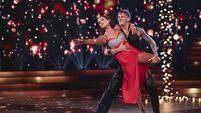Culture That Made Me: Claire Kilroy on Black Beauty, The Beatles, and rewatching Friends

Claire Kilroy: Black Beauty showed me the power of what a book can do
Born in 1973, Claire Kilroy grew up in Howth, Co Dublin. She was awarded the 2004 Rooney Prize for Irish Literature. Her fifth novel, , a raw account about motherhood, was shortlisted for this year’s prestigious Women’s Prize for Fiction in the UK. She will be in conversation with Jackie Lynam at the Clonmel Junction Arts Festival, Saturday, 6 July. See: www.junctionfestival.com.




